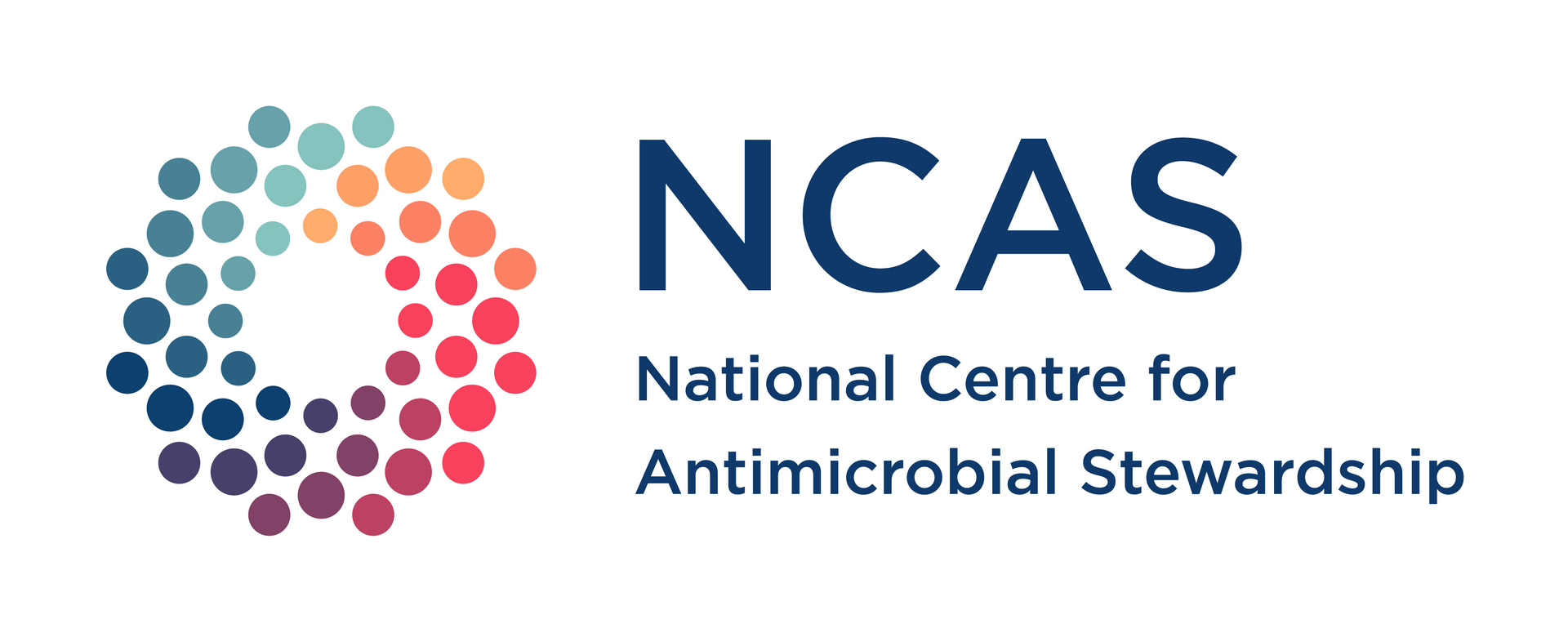It’s Antibiotic Awareness Week. How are we doing?
Arjun Rajkhowa
(Published in Medical Journal of Australia-Insight)
Identified as a key priority in Australia’s National Antimicrobial Resistance (AMR) Strategy, antimicrobial stewardship (AMS) refers to principles and practices that support better prescribing of antimicrobial drugs and the rationalisation of antimicrobial use. Stewardship programs aim to improve the safety and quality of patient care by optimising the prevention and treatment of infections.
Australia has achieved several milestones in the implementation of stewardship, including the incorporation of AMS into the National Safety and Quality Health Service Standards (and, as of 2019, aged care home accreditation standards as well), the implementation of electronic AMS systems in several hospitals nationally, and national participation in antimicrobial use reporting systems.
There is now growing interest in building on stewardship efforts in primary care. Associate Professor Jo-Anne Manski-Nankervis, a GP and senior lecturer at the University of Melbourne, says that there is growing awareness of the need for judicious antimicrobial use in the community.
“In 2017, over four in 10 Australians had at least one antimicrobial agent dispensed by a pharmacist. Many antimicrobial prescriptions are provided for conditions that don’t always require antimicrobial treatment, [such as] upper respiratory tract infections. This is of concern. In some cases, people may experience side effects, [such as] diarrhoea and rash, without receiving any benefit from their antibiotic treatment.
“It is also important that people receive antibiotics when they do need them, at the right dose and for the right length of time.”
The implementation of antimicrobial stewardship programs in hospitals has entailed multidisciplinary collaboration, primarily between infectious diseases physicians and pharmacists. Antimicrobial stewardship usually involves the monitoring and review of antimicrobial prescribing, as well as some restriction of the use of certain antimicrobial drugs. It fits within the health service quality improvement paradigm. Restrictive quality improvement interventions generally tend to be viewed with apprehension, at least until they have become part of standard practice.
Unintended consequences?
Anecdotally, from the time efforts to combat AMR started to gather momentum in clinical practice, reservations about the restrictive and interventionist role that antimicrobial stewardship programs can play have been expressed by clinicians working in hospitals and in the community.
Stewardship should be viewed as an initiative that enhances the safety and quality of care, and not (primarily) as an initiative that counters AMR through the restriction of antimicrobial use. In fact, some experts have suggested that discussions about AMR and AMS should, in some respects, be de-linked.
Messages need to communicate the fact that antimicrobial stewardship involves a myriad of efforts – in community education, prescriber education, development of electronic resources and workflow tools, and other areas – and does not solely focus on prescription reviews.
Experts and policy makers could also consider how people conceive of interventionist quality improvement efforts more broadly, and how awareness campaigns can be honed to clarify what such efforts entail.
A crucial concern some people have is that efforts aimed at rationalising antibiotic use may come at the cost of patient safety. The concern is that, because AMR awareness campaigns and antimicrobial stewardship programs tend to emphasise the message that antimicrobials are being used suboptimally, clinicians may hesitate to prescribe antibiotics even when it is necessary for the patient to receive antibiotic treatment.
Consequently, it’s important for campaigns to emphasise the fact that antimicrobial stewardship is primarily about enhancing patient safety. It is not simply about reducing the overall consumption of antibiotics. It is about ensuring that patients who need antibiotics receive appropriate therapy, and those who do not need antibiotics are not exposed to possible side effects for no benefit and are provided with appropriate care.
Where antimicrobial stewardship programs have been implemented, such as in tertiary hospitals in Australia, generally the focus is on reviewing and refining ongoing therapy, and not on restricting empirical prescribing. Australian hospitals, particularly in New South Wales, Victoria and Queensland, have also achieved significant success in improving sepsis care while implementing AMS programs.
Antibiotics can and do adversely affect individual patients. Antimicrobial stewardship is fundamentally about enhancing the appropriateness of antimicrobial therapy for the individual patient. It is about supporting prescribers to deliver the best care and using medicines optimally for patients.
In primary care research, GPs have highlighted the challenges they encounter while diagnosing infections (and trying to provide optimal treatment) and helping address patients’ concerns about their illness.
GPs have pointed out that there is a need to increase the public’s knowledge about infectious diseases and the therapeutic utility of different antimicrobial medications. Efforts to raise awareness in the community can aim to help patients become better informed about different infections and how they may be treated, and help us better understand how and when to discuss concerns about infection (eg, if we have received a “delayed prescription” for uncomplicated acute bronchitis and our condition subsequently worsens).
There are excellent examples of work on patient education in primary care, and clinicians are continually working on improving the resources that may be provided to patients during consultations. These resources serve to both educate and reassure. The National Centre for Antimicrobial Stewardship and the Department of General Practice at the University of Melbourne are working with GPs and the community to develop more such resources.
How do we respond?
We can do more to develop awareness of the importance of appropriate antimicrobial use.
We must do more to address the sense of inevitability and helplessness that characterises the public discourse around antimicrobial resistance.
Unlike some lifestyle-related disorders, where individual lifestyle and behaviour may affect the risk of becoming ill, communicable diseases generally tend to induce fear and helplessness because we don’t believe we have the capacity to mitigate risk.
Moreover, discussions about antimicrobial use and stewardship are sometimes undermined by the notion that improvements in one sector or region will invariably be countermanded by continued misuse (and the seeming absence of antimicrobial stewardship) in other sectors or regions.
As it may not be possible to comprehensively change practices in all sectors simultaneously, we may benefit from remaining committed to multi-pronged approaches. Collectively, doctors have an incentive to support evidence-based practices aimed at rationalising antimicrobial use locally, as local practices can influence the prevalence of drug-resistant infections. International comparisons have shown that there is an association between local antimicrobial usage and patterns of resistance. Some studies have suggested that changes in patterns of antimicrobial use within health care facilities may influence bacterial susceptibility locally. Thus, the impacts of rationalised use on rates of AMR cannot be denied.
Importantly, we can promote the idea that there are things that we can do as a community to minimise the risk of infection. Professor Kirsty Buising, an infectious diseases physician at the Royal Melbourne Hospital and the deputy director of the National Centre for Antimicrobial Stewardship at the University of Melbourne, says that infection control has a central role in controlling the fallout of AMR.
“Infection control is the first and most important step in controlling the rise of drug-resistant infections. When resistant bugs spread within facilities, our first priority is to contain this spread and to ensure that unaffected patients do not become colonised or infected. While we can incrementally change practices that contribute to AMR, in the immediate term, our priority is to ensure that infections do not spread.
“This requires improved hand hygiene and infection control in hospitals and aged care homes, safer sex practices in the community, and more.”
While most hospitals and aged care facilities in Australia have strong infection control programs, infection prevention and control strategies should always be on our radar, including across different sectors. The Australasian College for Infection Prevention and Control has contributed tremendously to AMR containment efforts in Australia. We should recognise that growing community awareness about the problem of drug-resistant infections has already contributed to substantial changes. Australia is now about to release its second National AMR Strategy.
Professor Sara Cosgrove is an infectious diseases physician at the Johns Hopkins Hospital in the US, and she spoke at the National AMR Forum at the University of Queensland and Royal Brisbane and Women’s Hospital on 7–8 November 2019. Referencing business academic John Kotter, she suggested these eight steps are key to promoting change around antimicrobial use practices:
• create a sense of urgency;
• form a powerful guiding coalition;
• create a compelling vision for change;
• communicate the vision effectively;
• empower others to act on the vision;
• plan for and create short term wins;
• consolidate improvements and create more change; and
• institutionalise the new approaches.
Our willingness to recognise and act on the issue has already had an impact on policy and practice. We must ensure that continued efforts build on this momentum.











